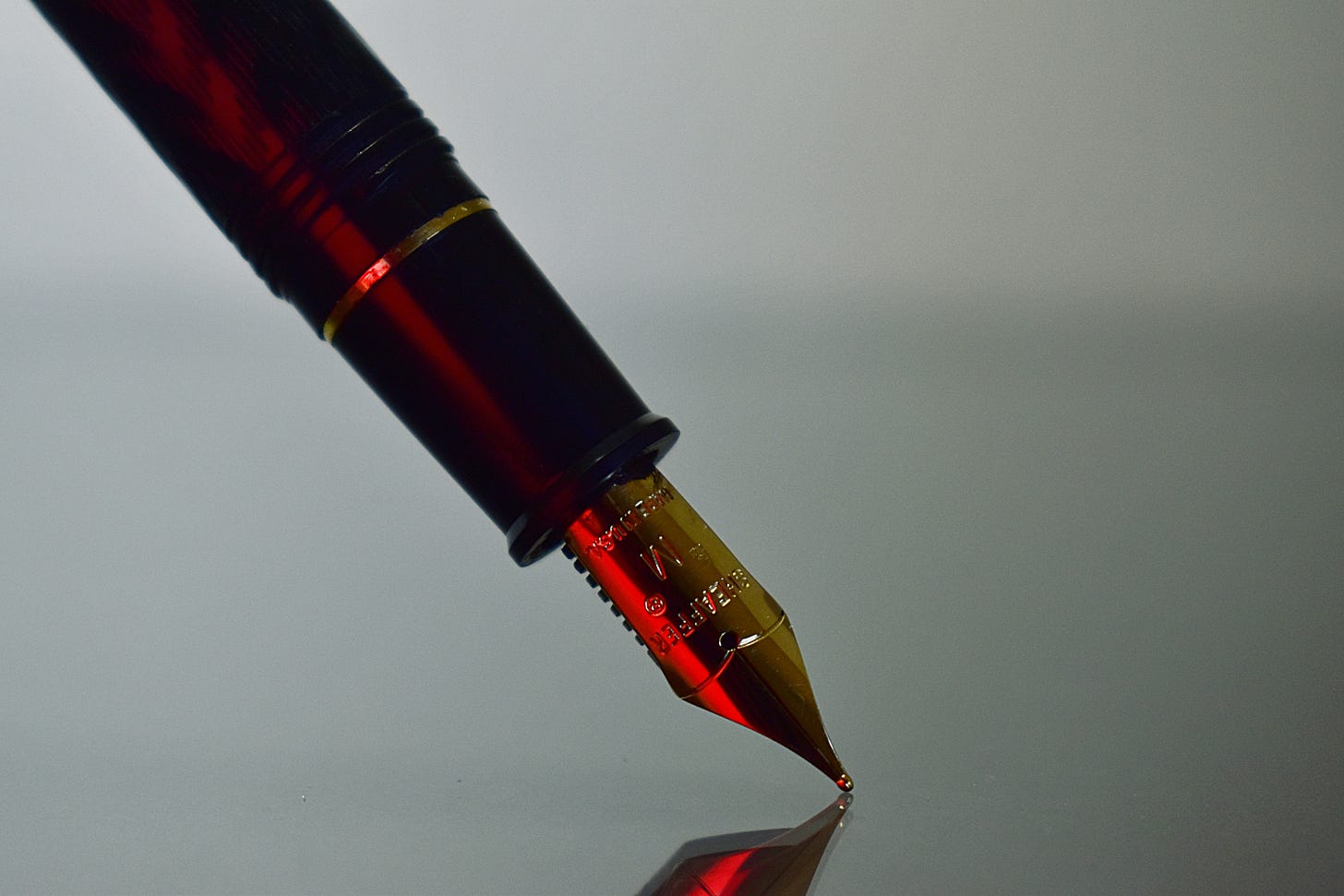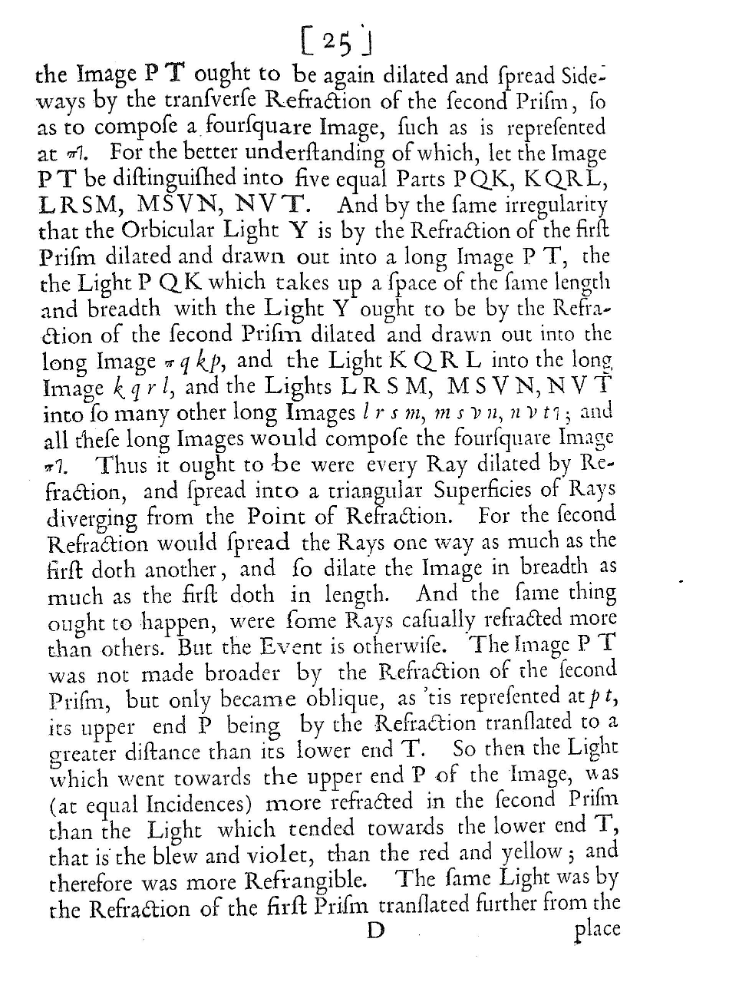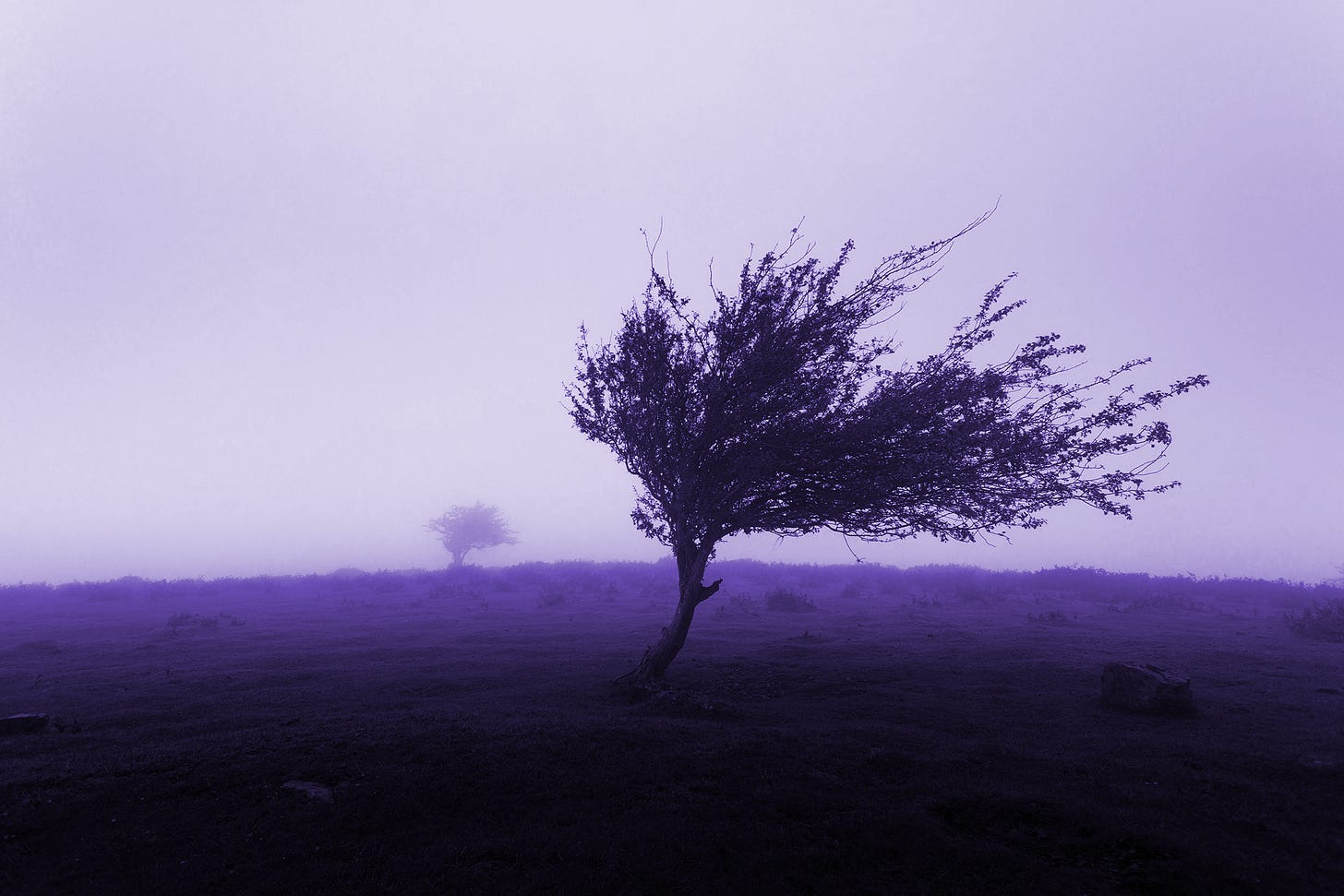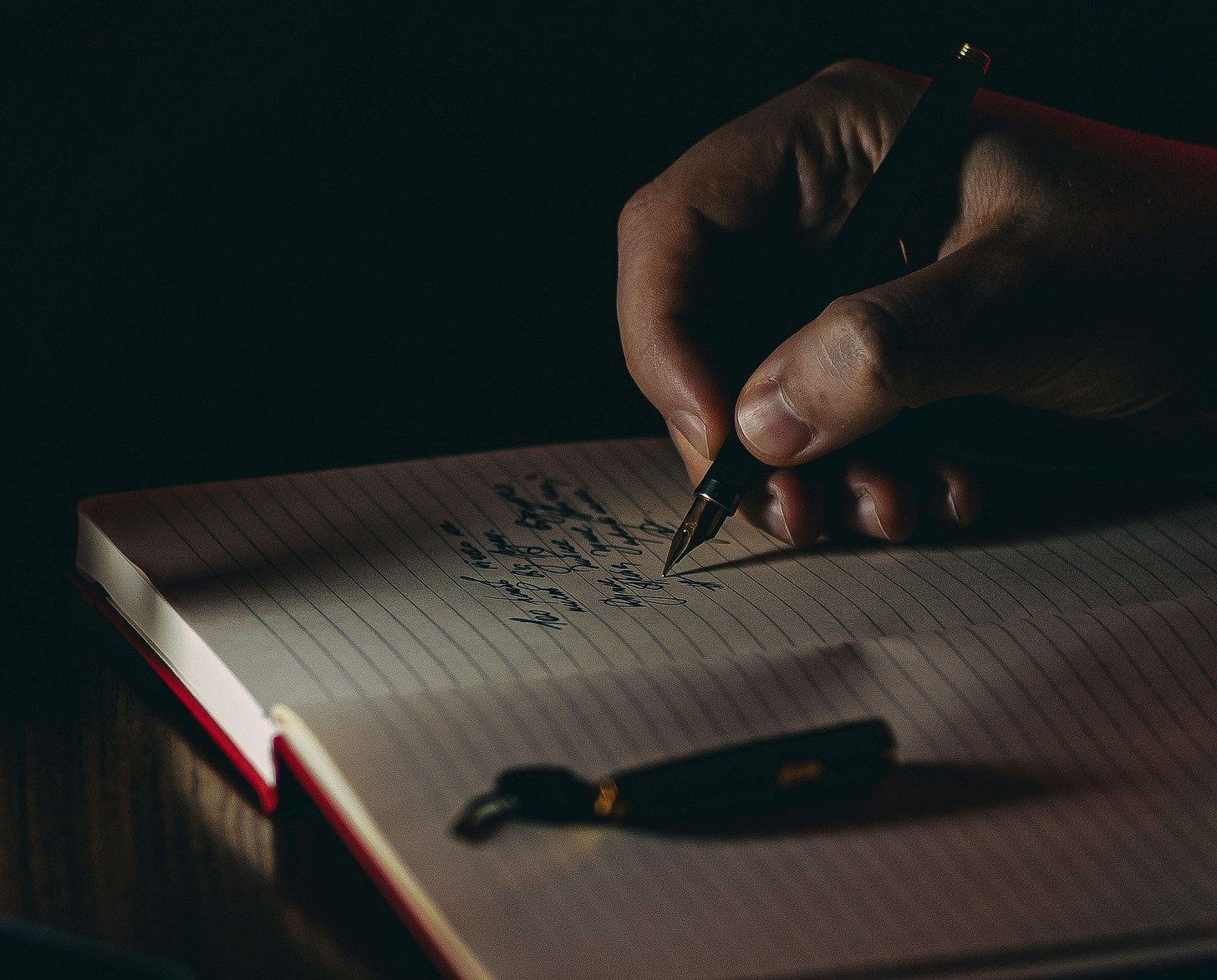Identifying Your Passions
Getting Started As A Writer
Let’s start with why you are here
You’ll be here for a range of reasons. Perhaps you are here because you are a friend of mine and want to support me in this new venture. If so, thank you – I appreciate the support, not least whilst everything vies for our attention online. Perhaps (and hopefully) you are here because you are a writer or feel compelled to write. If so, welcome and thank you for subscribing. In the latter scenario, you are here because you enjoy expressing yourself through the written word, you enjoy rendering your observations powerfully, you want to capture something of the fleetingness of the everyday, to lock the ephemeral experience of being into words. Sometimes we write to have our opinions challenged or strengthened. Sometimes we write to create new vistas and embodiments of the experience of being in the world. Sometimes we write to be free of the burden of our feelings. To render them into consciousness with clarity is cathartic- it is ultimately a type of purging.
Nobody said writing was easy. Sometimes it seems that everything has been said already. And yet, new stories and poems arrive all the time. Everyone reading this will generate a different piece of work from the same creative prompt. We are all unique products of our unique life stories, and we all have a vast network of information being processed at any given time. As creative people, we are compelled to take notice of everything, we want to obtain knowledge. I want to know why that the shoe was left on the side of the motorway. I don’t like to skim the details. These tiny observations snag me and make me worry for the root of the story behind the object. I try to leave myself open to the distractions and preoccupations, to the twists and tangents of the myriad stories that surround us, so my writing has a sense of chaos rather than sounding forced, composed, and artificial.
Why we want to write is different for everybody. Sometimes it will be to tell a story, your own or someone else’s. Or an imagined story. Sometimes it will be because you are politically minded and writing has become your vehicle to express your worries about the world. Sometimes it is to make the invisible, visible, and the intangible tangible, to document the complex nuances of interactions, relationships, landscapes, characters, dialogue and so on… Sometimes, as Janet Burroway suggests in Writing Fiction, it will be to reveal something about the emotional undertow of a situation. When I ask myself why I write, there are a few answers. I write because I can’t not write, because when I was four years old my sister died and I needed to find a language for that, I needed to put that experience into words. At that time, my teacher asked me for a paragraph, and I wrote 37 pages- it was spilling out. So, it is true that writing has saved me and that I write to survive. I write to know myself and to know others, to remember that no matter how alone I feel whilst navigating the world, no matter how disappointed or let down I am by people and relationships, that no one can take away my relationship with my craft of writing. This type of communing with oneself when writing is like a puzzle or meditation that few other experiences come close to.
But like any relationship, it can’t be neglected, it needs to be nurtured. The main objective we have is to start writing. As Jeannette Winterson said, “show up, the muse will too [….] show up, show up, show up, and after a while the muse shows up, too.”
Call Yourself a Writer
I want to suggest that you start to call yourself writers even if you are early in your journey and haven’t yet published. It unlocks a particular freedom and grants you permission to be a writer. Identity, as we know from Judith Butler, is fluid, rather than fixed and stable. And so much of our behaviour is a performance of our identity. It is important to name it, to own it and feel it. No matter what your craft, my first tip would be to call yourself the profession you want to be. If you write, you are a writer. If you like to draw or paint, you are an artist. If you take photographs, you are a photographer. Your chosen creative pursuit will catch up with the grand label. Essentially, you’ll grow into it. The truth is that a lot of writing happens when we are not writing, because thinking is essentially a gestational form of writing.
Anne Boyer demonstrates this idea in her prose poem, “Not Writing”:
“When I am not writing I am not writing a novel called 1994 about a young woman in an office park in a provincial town who has a job cutting and pasting time. I am not writing a novel called Nero about the world's richest art star in space. I am not writing a book called Kansas City Spleen. I am not writing a sequel to Kansas City Spleen called Bitch's Maldoror. I am not writing a book of political philosophy called Questions for Poets. I am not writing a scandalous memoir. I am not writing a pathetic memoir. I am not writing a memoir about poetry or love. I am not writing a memoir about poverty, debt collection, or bankruptcy. I am not writing about family court. I am not writing a memoir because memoirs are for property owners and not writing a memoir about prohibitions of memoirs.”
1 (an excerpt)
Of course, the irony is that Anne Boyer is writing, not only the piece itself, but all the ideas and plans she speaks of.
When You Are Not Writing
A Question For You. What are your activities when you are not writing? Are you in the supermarket or the side-lines of a football pitch? Do you have the time to engage and pen out, map your ideas? Remember: thinking is a type of writing. For me, there is a mental shakedown that occurs, ideas floating in and out which add to the inner fluid medium of the act of thinking. And all of this occurs before I decide to note down the idea and rearrange it into material and progress it to a finished edited state.
It is important to be out in the world, to engage with the world. Henry Miller suggested making occasional visits to museums and galleries to write and sketch in cafes, on trains and streets. Notice how it changes your output. Notice how this ushers in a range of fresh material that otherwise would not have emerged. One of my favourite quotes about being in the world is by the poet, John James:
You can afford to be less cerebral
less intellectual less brilliant less clever
less locked-up-in-your room-at-night-ish
less reticent & deferential
The message is: get out in the world. Let the world dictate, to a degree, what emerges.
As our experiential journey in the world progresses, our reasons for writing change because fundamentally we are different, our interests (reading and otherwise) develop, what we find most fascinating at any one point in our lives, is subject to consistent renewal.
A Little About My Practice
I would like to now tell you a little about my writing practice, not to indulge in an examination of my own contribution to the field, but because perhaps this might shift something for you with your practice.
As a writer, I’m a leech that sucks the life-blood from other disciplines. My first book Ephemeris was engaging with astronomy and cosmology. I wanted to find a language for the intimate relationship we have between the universe and our bodies. I scoured astronomy papers and books for the detail, specific language which carried a charge or frisson of the poetic. Of course, though it wasn’t the raison d'etre, I learnt a great deal about planets, moons, nebulae and other astronomical phenomena in the process. Before curating that information into poetry, the science was mulled over, meditated upon, half understood (as much as my creative brain can understand science) the ‘science’ is implicit in its thinking, in the under-wiring of the poem.
My next publication, Places of Articulation, I borrowed phrases, fragments and diagnoses from neurological speech disorders and aphasiology reports. In Umwelt, I stole from the language of immunology. For Bettbehandlung, I stole fragments from accounts of historical treatments of the mentally ill. For House Girl, the language of the treatments of leprosy.
This became my exegetical framework for praxis, by which I mean my way of writing that I have analysed and given a great deal of thought to. This type of reflection (which I will write about in another post) requires you to step back, pause, look, listen, unpack ideas, thoughts and not take things at face value. It requires you to find patterns and links in your practice, and through that process identify elements you may not otherwise have noticed.
For me, it became a process of taking the scientific information or the historical facts, or whichever type of knowledge, and deploying it as poetry as an illusion, as metaphor, as information. This stems from a natural curiosity about the science of the world that mainstream education hadn’t managed to convey to me in a digestible form.
Now It’s Your Turn
Here is an exercise which plays with the fragment of science. Let’s take Isaac Newton’s Opticks. Write down three lines of three-to-four-word fragments from the above text. By fragment, I mean not a whole sentence. Now you will see you are beginning to shape a poem, and that poem will be explicitly or implicitly scientific (depending on whether you took the scientific fragments or the fragments that might be broader in their meaning).
What you choose to do with it now is up to you- you might wish to think about the new associations that the work has ushered in and whether the words you’ve chosen could open up an investigation of something else e.g. if I choose ‘the blew and violet’ from the third line from the end, as a fragment, what might that usher in?
In just four short words, we have a range of new associations that are divorced from the original context. "Blew" as a verb, primarily brings in the action of blowing, which can have various associations depending on the context—e.g. the wind blowing, blowing a whistle, or blowing bubbles. Next to “violet”, I think of a blueish plant, and in connection with "blew," it seems like I am playing with the homophony between "blew" and "blue," thus mixing the auditory aspect of the former with the visual hue of the latter. This creative blending can evoke images or ideas that merge the essence of air or wind with the colour blue, suggesting a blue plant swaying in the wind, and embodying the action of "blew" through its movement. The idea of breath or wind having a colour, visualising the invisible force as blue, perhaps implying a sense of coolness or freshness. This blend of concepts can inspire a range of artistic or literary interpretations, from the literal—a blue-coloured plant being blown by the wind—to more metaphorical or fantastical notions, such as plants that emit or change colour according to their emotional state.
So, you can see I could emerge with an entirely new direction from the original (ur) text.
To Be Creative Requires Courage
You have to have the courage to do this, to be creative with concepts, rather than intimidated. The poem needn’t supply information, no one needs to be clobbered by information – you can simply use it as a background echo. But along the way, whilst you are engaging with these abstract concepts and realms, you will inevitably learn about the world.
If you read my work, you would hear these themes occurring, the science, but specifically medical languages. But you will often also encounter my own experiences, personal elements that are highly coded and multi-interpretational. For me, this experiment in assemblage and collage wasn’t necessarily about authenticity, clarity or cohesion, it was about the new resonances the information bought to the page, even in the event that this might mean that the meaning is abandoned. I found it intensely valuable and productive to repurpose information from another discourse and mix it with the lyricism and emotional undertow of poetry. I loved working with those shifting resonances, the juddering of registers crashing against each other.
Ask yourself why do you write and what are your passions? What are your obsessions? Do you have any? I love these two quotes by Natalie Goldberg and E.B. White:
In Writing Down the Bones, Natalie Goldberg suggests your writing is going to go there anyway whether you like it or not. So, as Goldberg suggests, "you might as well give in to them." Your obsessions are a power to be harnessed and that is where the energy in your writing will lie.
E.B. White writes that:
“a writer should concern himself with whatever absorbs his fancy, stirs his heart, and unlimbers his typewriter. I feel no obligation to deal with politics. I do feel a responsibility to society because of going into print: a writer has the duty to be good, not lousy; true, not false; lively, not dull; accurate, not full of error. He should tend to lift people up, not lower them down. Writers do not merely reflect and interpret life, they inform and shape life.”
Your Task
Your task then, is to go and consider (or admit to) your obsessions and plan for your next creative project. Slow down and think beyond what is expected. Take fragments. Upend convention, take risks, write with specificity and sophistication, work your obsessions into creative work. If you don’t know what to begin with, find the hidden stories- they are all around us. Talk to your parents/grandparents, carers, children, your siblings, co-workers and friends. Rewrite (with care and permission) their stories or borrow their passions to produce new writing.
I hope you have found something useful in this post. Paid subscribers can expect another post on Tuesday.
Excerpt from “Not Writing”, https://www.poetryfoundation.org/poems/58316/not-writing
Opticks: or, A Treatise of the Reflexions, Refractions, Inflexions and Colours of Light by Issac Newton, https://en.wikipedia.org/wiki/Opticks






